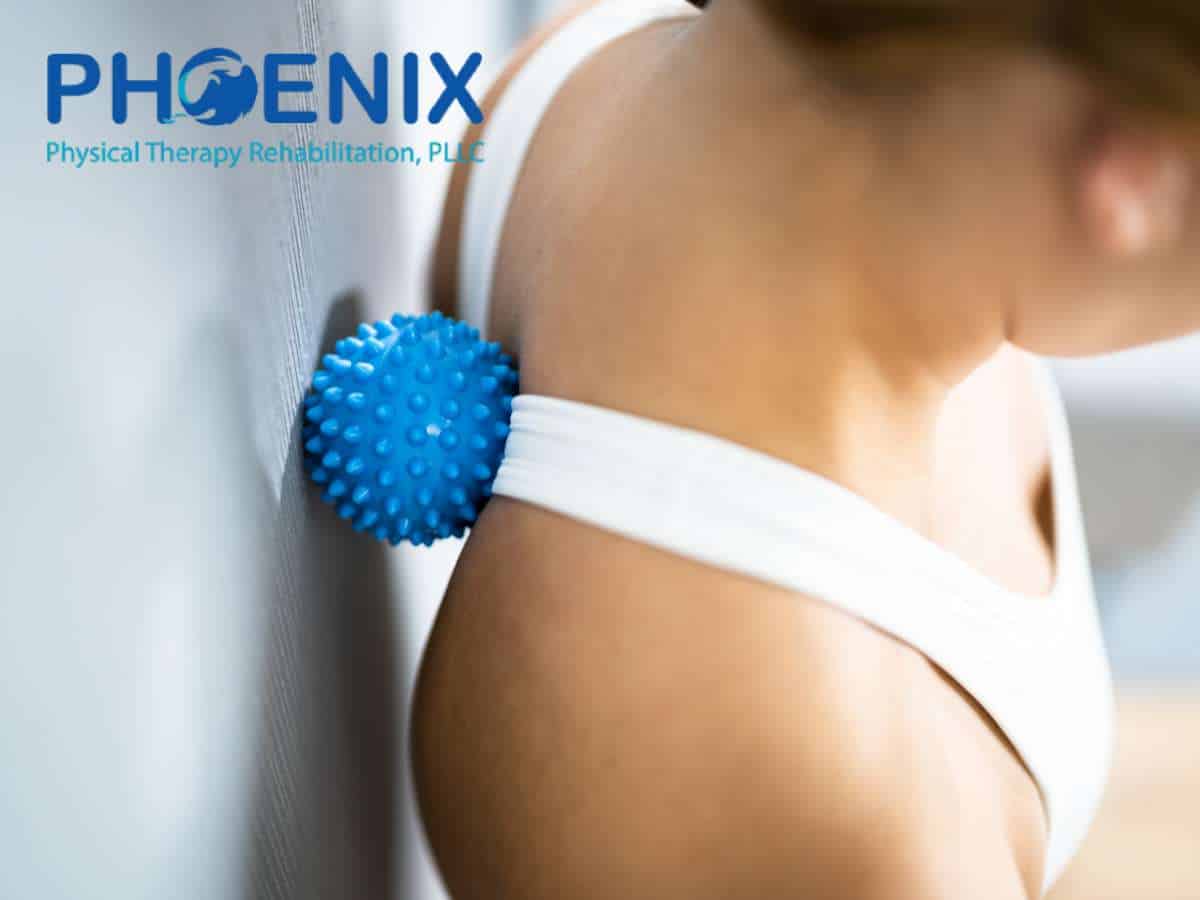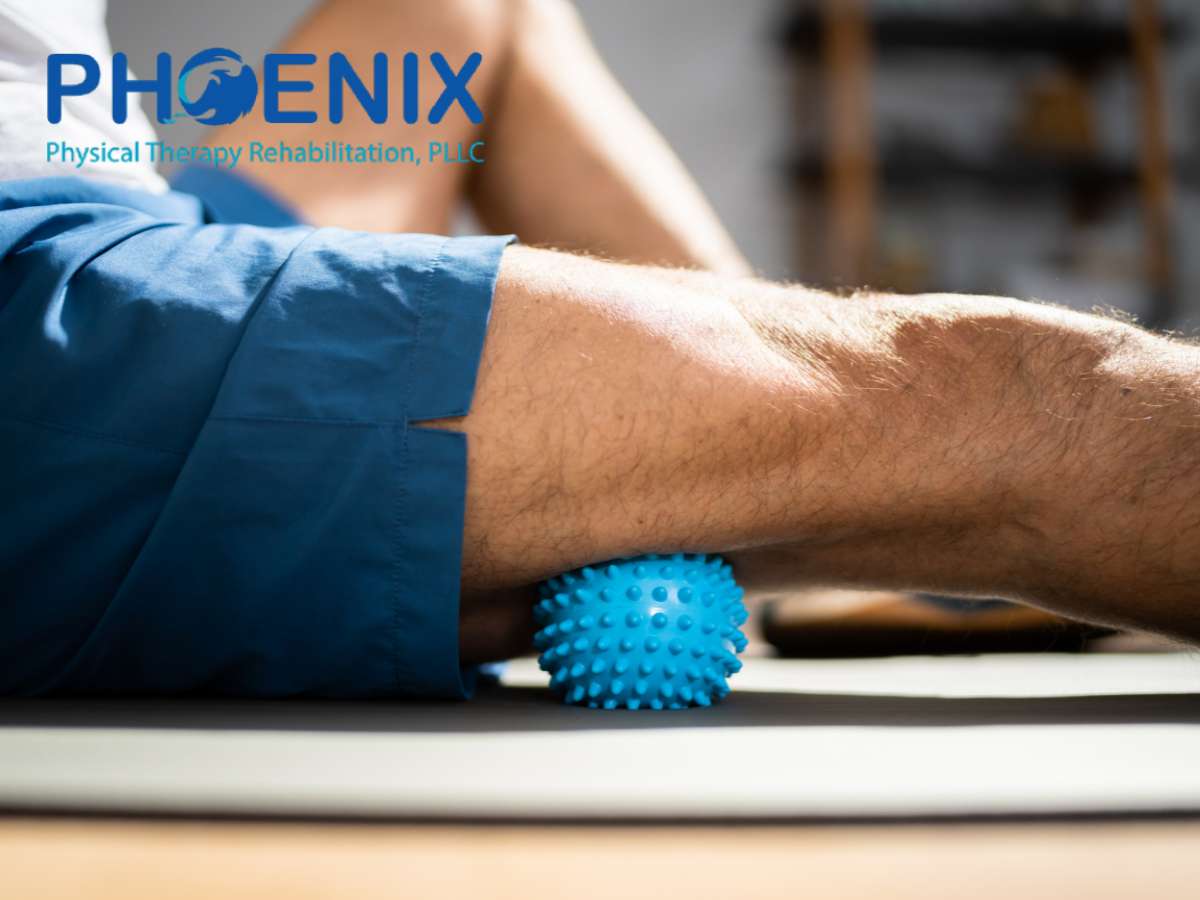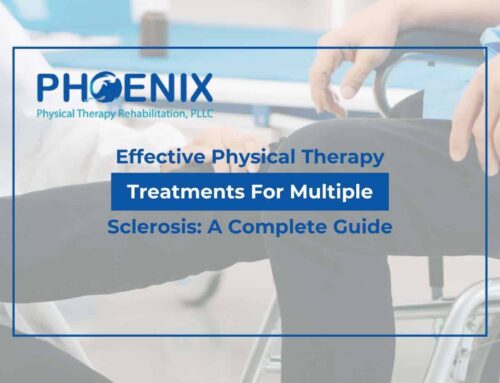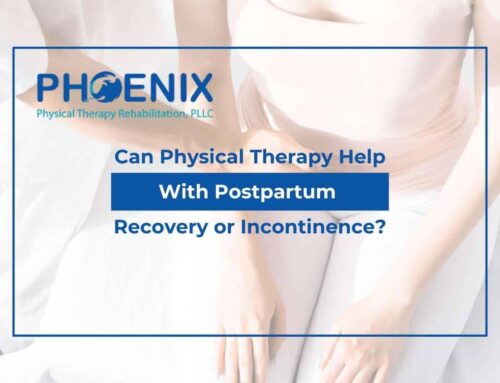How To Naturally Get Rid Of Muscle Knots
Muscle knots are a result of many different factors, most of them lifestyle habits. These pesky little balls of tension are often caused by muscle overuse, muscle fatigue, stress, poor posture, and dehydration among other things. The pain associated with knots can vary in strength and manifest as sore, tight, or tender.
Occasionally, knots may indicate a chronic condition called myofascial pain syndrome. This syndrome occurs after repetitive motion associated with a job or other daily tasks. While most people experience muscle knots and pain at times, myofascial pain syndrome is more persistent and continually worsens.
Whether you’re dealing with frustrating muscle knots that come and go or something more chronic like myofascial pain syndrome, you may find seeking out Brooklyn physical therapy to be helpful.
Muscle Knots & What They Are
Muscle knots develop when muscle fibers contract and remain contracted, failing to relax properly. This prolonged contraction can lead to the formation of knots as muscle tissues become compressed and blood flow to the area is restricted. This compression and blood flow restriction produces painful knots that are small to large.
When searching for knots with your hands on yourself or others, they often feel like a palpable lump beneath the skin. These knots are typically tender to the touch and can cause discomfort or pain, ranging from mild to severe. Some knots are painful just by existing, others don’t produce pain until pressure is placed on them.
Muscle knots can cause a range of symptoms, including localized pain, stiffness, reduced range of motion, and even referred pain to other areas of the body. They can interfere with daily activities such as sitting, standing, or exercising, and may also lead to headaches or migraines. All of these symptoms can be hugely improved by Brooklyn physical therapists!
What Causes Muscle Knots?
Knots tend to present themselves after one or more of the factors below:
- Muscle overuse and fatigue from repetitive or excessive physical activity
- Poor posture, including prolonged sitting or slouching
- Sedentary lifestyle with insufficient movement
- Dehydration and inadequate hydration levels
- Inadequate intake of essential nutrients, such as magnesium or potassium
- Stress and emotional tension
- Muscular imbalances and weaknesses
- Physical trauma or injury to the muscle
- Improper body mechanics during activities
- Poor warm-up or cool-down routines before and after exercise
- Certain medical conditions or disorders involving muscles or connective tissues
- Genetic predisposition or individual susceptibility to muscle knots
It is important to pay attention to your body and evaluate where you might be overusing a muscle, using an incorrect posture, or putting yourself through too much. The pain knots create can be debilitating. That said, many different steps can be taken to heal or prevent knots with Brooklyn physical therapy.
Where Are Muscle Knots Commonly Found?

- Neck
- Jaw
- Upper back
- Shoulders
- Lower back
- Gluteal muscles
- Calves
- Forearms
- IT Band
A muscle knot may be contributing to the following conditions or symptoms:
- Restricted range of motion or stiffness in muscle
- Muscle weakness or fatigue in the affected area
- Headaches or migraines
- Posture imbalances or misalignment
- Disrupted or difficulty sleeping due to pain
- Tingling or numbness in the affected area
It is important to note that while muscle knots can contribute to these symptoms, they may not be the sole cause. Consulting with a healthcare professional, such as a physician or Brooklyn Physical therapist is recommended for a proper diagnosis and appropriate treatment.
Muscle Knot Treatments
There are several treatments to help relieve or prevent muscle knots. Some you can perform at home, others may need to be done by a professional. It is important to contact a healthcare professional to determine the most appropriate treatment approach for your situation. They can provide a personalized plan based on your symptoms, medical history, and specific needs.
Self-care and lifestyle changes:
- Stretching: Use slow, gentle, and controlled stretching targeting the affected area.
- Heat Therapy: Applying heat to a muscle knot can help increase blood flow and promote relaxation.
- Movement: If you spend your days sedentary, take breaks to get up and walk around, shaking out your muscles and promoting blood flow.
- Cold Therapy: Cold packs or ice can help reduce inflammation and numb the area, providing temporary pain relief.
- Relaxation: Give the affected muscle adequate rest and practice relaxation techniques, such as deep breathing or meditation.
If self-care isn’t helping, there are many treatments a healthcare provider may recommend:
- Massage therapy: A skilled massage therapist can apply targeted pressure and techniques to release muscle knots. They may use deep tissue massage, trigger point therapy, or myofascial release techniques.
- Physical Therapy: A Brooklyn physical therapist can assess your condition and provide specific exercises, stretches, and manual therapies to address muscle knots.
- Dry Needling: This technique involves inserting thin needles into the muscle knot to stimulate a release and relaxation response.
- Medications: Over-the-counter pain relievers like ibuprofen or acetaminophen can temporarily alleviate pain and reduce inflammation. However, they do not treat the underlying cause of muscle knots.
Get In Touch With a Leading Physical Therapist For Your Muscle Pain!
If you’re looking for a physical therapist to help you with your frustrating muscle knots, look no further! Phoenix Physical Therapy & Rehab offers the help you need. With experienced and compassionate physicians, convenient service hours, and state-of-the-art equipment and facilities, we can provide the service you require!
It is our goal to work together with you toward healing. Contact us today through our online form. We look forward to hearing from you and helping you take steps toward a more healthy life!
Phoenix Physical Therapy
Rosedale Location
23520 147th Avenue, Suite 1,
Rosedale, NY, 11422
Brooklyn Location
7510 4th Ave., Suite 3,
Brooklyn, NY, 11209
Phone: (347) 733-1916








